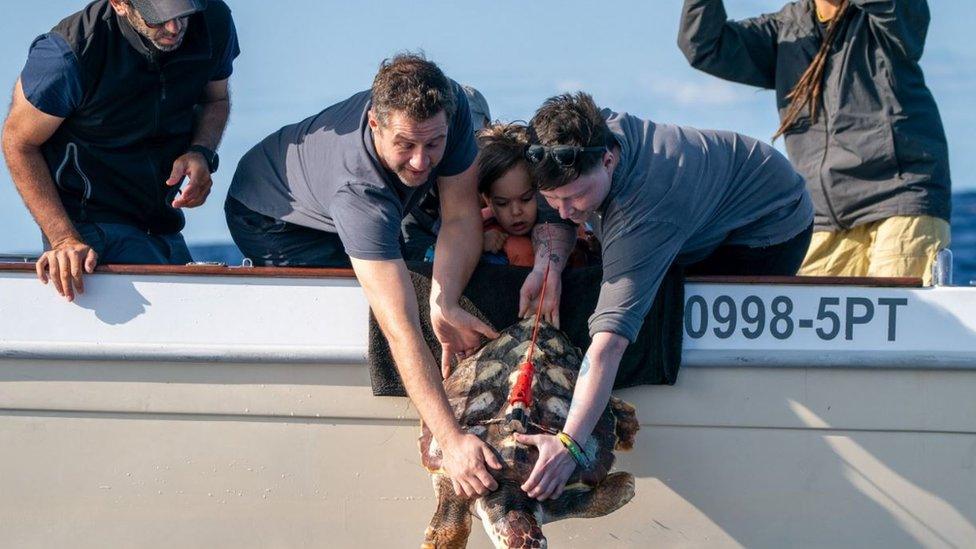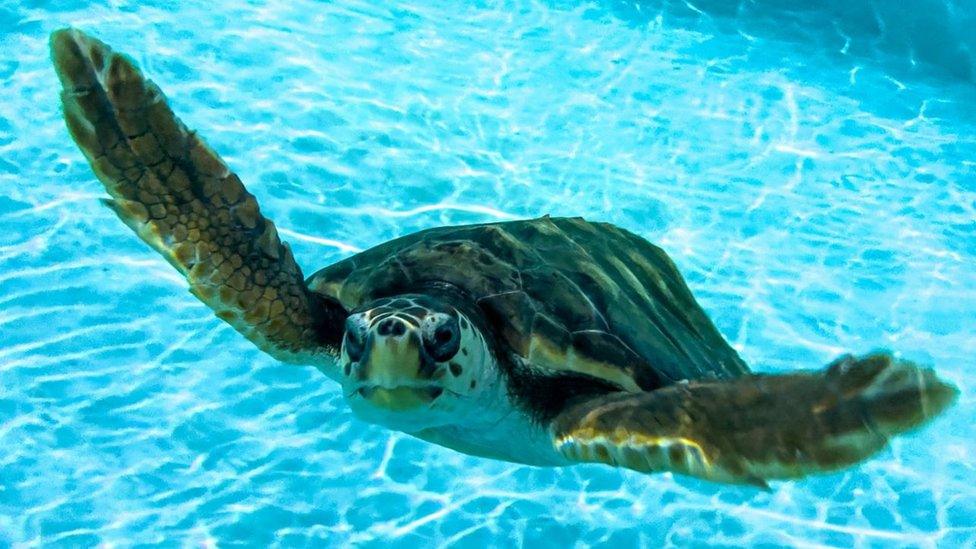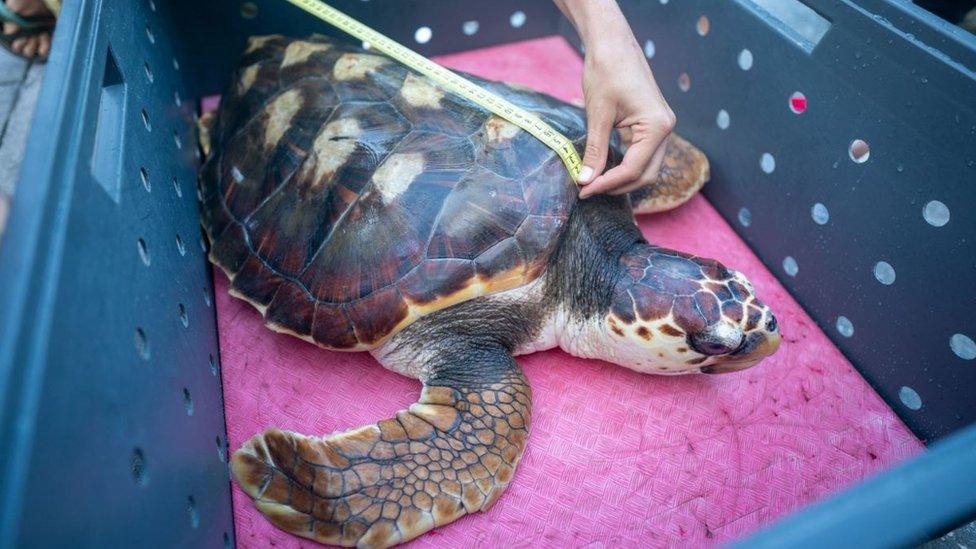Off-course turtle named after Scottish island taken 1,700 miles home
- Published

The animal found cold, stunned and dehydrated, became the smallest live stranded loggerhead turtle recorded in the UK
A turtle nursed back to health in Yorkshire after being washed up on a Scottish beach has been released back to its home waters 1,700 miles away.
The creature was found "malnourished and dehydrated" in wintry seas off the Scottish island of Iona - after which she was named - in January 2022.
She was rehabilitated at Sea Life in Scarborough for 18 months, before being released in the Portuguese Azores.
Todd German at the Scarborough aquarium said her release was "surreal".

Iona was placed in a holding tank at a facility in the Azores before being released back into the Atlantic Ocean
Iona, a loggerhead turtle, had not been expected to "make the night" after she was spotted by a passer-by more than 1,000 miles (1,600km) from her natural habitat.
She was taken to Sea Life in Loch Lomond for rehabilitation, before being relocated to Sea Life in Scarborough.
Mr German, animal care curator at Sea Life Scarborough, said the reptile was found "in the bleak midwinter, [it] is just incredibly lucky that she was found".
"It was really touch-and-go whether or not she would pull through and make it."

The turtle has been restored to good health and released back into the wild
He said the turtle's release on 4 October was "quite surreal because she's been with us for a long time".
However, he added it had been a "really lovely feeling to see her go off into the big blue".
'Super resilient'
Robin Hunter, display supervisor at Sea Life Loch Lomond, said: "To be able to see her now go and live the way she's supposed to be living, that is a phenomenal feeling."
She said Iona's recovery had been "remarkable".
The turtle has been fitted with a satellite tag to allow researchers to monitor her behaviour in the wild.
Mafalda Sousa, research assistant at the Institute for Research in Marine Sciences, said there was a chance she could migrate as far as North America because "when loggerheads reach sexual maturity they move to nesting beaches".
She said she was confident Iona would thrive again in the wild, describing her species as "super-resilient".

Follow BBC Yorkshire on Facebook, external, X (formerly Twitter), external and Instagram, external. Send your story ideas to yorkslincs.news@bbc.co.uk, external.